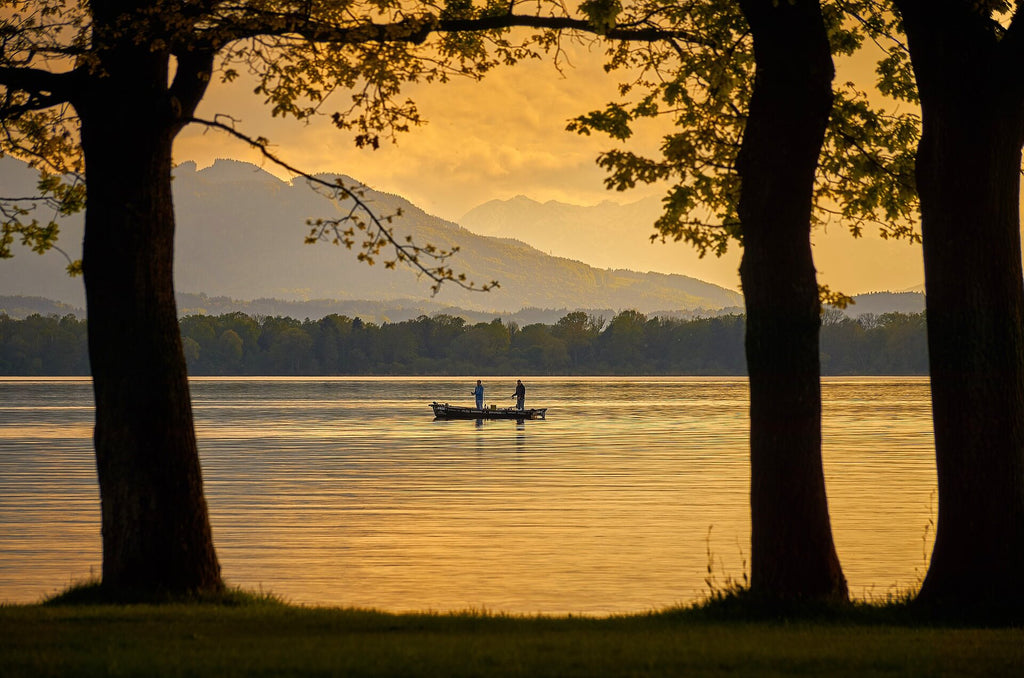Baiting when fishing - a guarantee of success or harmful for waters?

No matter what type of angler you are when fishing for coarse fish, baiting fish is usually a cross-disciplinary and, above all, extremely worthwhile approach, which has almost become the norm . Regardless of the undoubtedly very generous catches on the part of anglers, there have also been voices for some time now that are quite critical of baiting the lure of the scaly aquatic creatures.
The question is being asked more and more often whether baiting should simply be seen as a guarantee of success when fishing for coarse fish , or whether it is a harmful procedure that causes considerable damage to waters around the world. WOLFGANGS takes a closer look and lists for you what needs to be shed light on this topic.
Baiting brings fish to the hook
Of course, baiting is not just done on a whim, but there is a hard fact behind it that makes not baiting very problematic from the angler's point of view - baiting has been proven to hook more fish! So a few missed bites while fishing are probably bearable.
If we break this down to the average angler in Germany, the statistics would mean that around 60 grams of bait is used per hour of fishing . In terms of feed, the amount accumulated per angler is an impressive 7.3 kilograms within an average fishing year. However, the feed is not the food of the scaled fish that has come under criticism, as most of the time only grain bait is used. The main focus is solely on the feed, which can amount to up to 300 kilograms per angler within a year.
In view of the eye-opening statistics, it must be said that around 48 percent of all German anglers do not use any bait at all, but the remaining ones seem to be reason enough for critics to take a more critical look at the issue. Then, of course, there are anglers from other nations who are sometimes much more active in terms of baiting than we are in Germany. How does this criticism come about?

Baiting when fishing - how much do the waters suffer?
The most cause for concern is the so-called nutrient input into the water , which is also called eutrophication. The inputs not only penetrate into the water, but can also be detected later on within the fish. Since the feed is mostly consumed by the fish and can be categorised as a nutritional supplement, the ingredients are also deposited inside the fish.
The phosphorus used in bait is particularly in the crosshairs of critics. Samples of caught fish clearly show that phosphorus can be deposited in the bones, but also in the tissue of the aquatic creature .
But baiting when fishing is also being examined more closely due to the increasing deterioration of the waters. Here too, the phosphorus in the bait plays a key role. It ensures that blue-green algae blooms can grow more rapidly, which further exacerbates the already occurring deterioration of the waters.
Statistics give some reassurance
According to statistics, the all-clear can be given, at least when it comes to baiting when fishing. Although it is still undisputed that bait releases phosphorus into the water, the average angler's catch in Germany is so high that more than twice the amount of phosphorus added is removed from the water again. While an average of around 34 grams of phosphorus ends up in the water within a year, the phosphorus content in the fish caught is between 73 and 91 grams.
Appropriate feeding is the best way
When it comes to the topic of " baiting when fishing ", the motto should always be to display appropriate and normal baiting behavior and not to exaggerate it unnecessarily or ill-considered. In this way, you can continue to be sure of an excellent catch and most waters do not suffer the consequences.
A responsible approach should always be taken when baiting. Particularly sensitive waters, which also suffer from very low nutrient levels, should not be put under additional strain by baiting when fishing. The only correct approach here is to avoid baiting altogether. In normal to very nutrient-rich waters, however, the luring method has no negative consequences for the ecosystem.






